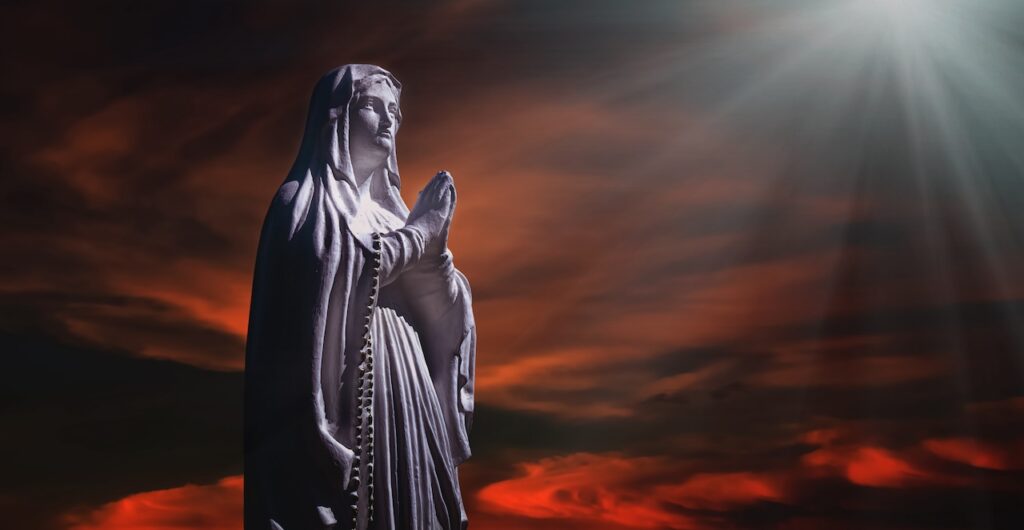Something I did not experience a lot when I was growing up were Marian devotions. I’m sure we had them, e.g., May crowning processions, but they did not make an impact upon me at the time. Possibly, it was because there was a tendency during the 1970s in some parishes to cut back, or place less emphasis, on some Church traditions like Marian devotions.
The bishops of the Second Vatican Council made clear the role of the Blessed Virgin in the life of the Church when they wrote: “… that the cult, especially the liturgical cult, of the Blessed Virgin, be generously fostered [emphasis added] …” (Lumen Gentium, 67).
I am grateful that during high school retreats, we were encouraged to pray the rosary, and Marian devotions were an integral part of my seminary formation and priestly work and life. Through them, I experienced their vast treasure and grew in my appreciation of what our Church teaches about our Blessed Mother.
We seem to have come full circle, which often happens with things that are good and spiritually beneficial. Marian devotions might have gone through a drop-off in attendance and prominence, but over time, we have recognized and embraced their value, dignity and goodness.
In a world filled with uncertainty and cultural disruption, traditional approaches toward the human person and relationships are being challenged, as are attitudes and ways of behaving. The culture sometimes pushes us in a direction that can be uncomfortable for Catholics.
Catholics who have seen how the secular attitude – an attitude that doesn’t see the value of traditional spirituality, faith and belief – can damage relationships and interactions, see a need to recapture and highlight the traditions of our faith, which include Marian devotions.
As a Catholic bishop, my role is to faithfully hand on what we have received from our Lord. His teachings and actions have come to us through Scripture and our millennia-old Catholic tradition. These are the core of the faith we profess and live.
Our refined, ancient awareness of the role of Mary, an appreciation that is deeper than that of any other religious group, flows into our devotion to Our Lady. That emphasis is why so many young people are seeking more traditional forms of liturgical and theological expression that are found in Marian devotions. Mariology is attractive to those raised in a secularized environment where faith might not have been as integral as it may have been in the past in various ethnic communities.
Another reason for this renewal is the interior desire for Catholics to want to highlight and emphasize our Catholic identity. The multiple forms of Marian devotions express our uniquely Catholic appreciation for Our Lady.
It speaks well of our diocese that 27 of our parishes are named for our Blessed Mother or refer to a significant event, practice or patronage related to her, e.g., Immaculate Conception, Annunciation, Visitation, Our Lady of the Rosary, Our Lady of Perpetual Help, etc. This is particularly significant as in parts of southern Virginia there has been maybe a distance, sometimes even a suspicion, among our Protestant brothers and sisters that our Marian devotions are somehow inappropriate, that they detract from focusing on the Word of God.
Devotion to our Blessed Mother is most fitting. As the Council Fathers noted, Mary “figured profoundly in the history of salvation,” adding, “… when she is being preached and venerated, she summons the faithful to her Son and his sacrifice, and to love for the Father” (Lumen Gentium, 8).
The bishops also noted, “Clearly from earliest times the Blessed Virgin is honored under the title of Mother of God, under whose protection the faithful took refuge in all their dangers and necessities” (Lumen Gentium, 66).
During this month devoted to Mary, I encourage you to spend time getting to know our Blessed Mother and, during these tumultuous times, find refuge in her.

